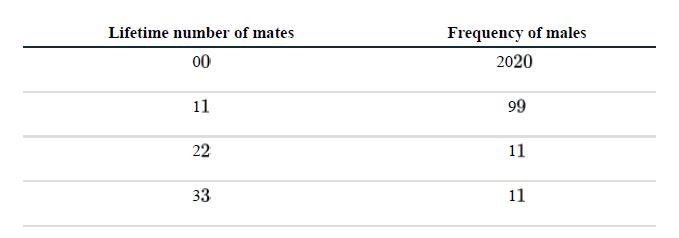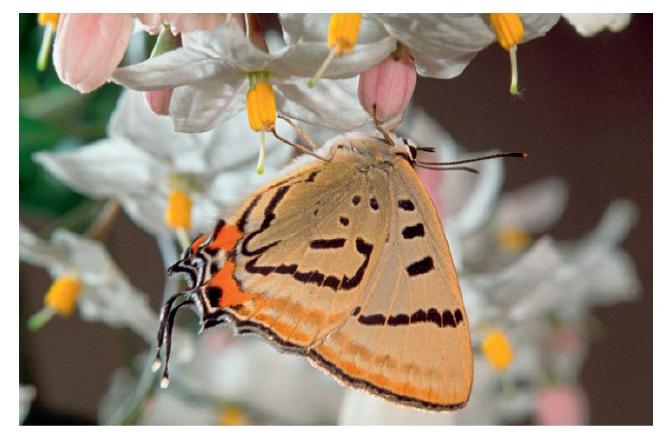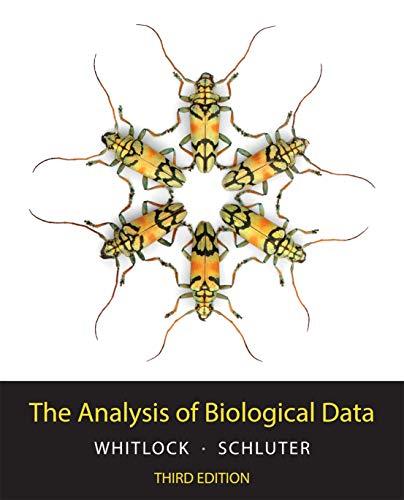Males of the Australian butterfly Jalmenus evagoras search for females and mate with them just as the
Question:
Males of the Australian butterfly Jalmenus evagoras search for females and mate with them just as the females emerge as adults from the pupae. Multiple males might discover the same female, in which case they all attempt to mate with the same female as she emerges, forming a “mating ball.” Females mate only once, and it is possible to record which male successfully mated with every female in a local population. In this way, Elgar and Pierce (1988) were able to track the mating success of 35 individual male J. evagoras butterflies over their complete life spans. Mating success is indicated in the accompanying table.



a. Show these data in a graph.
b. Which probability distribution is expected to fit these data if all males have an equal probability of mating and if mating events are independent?
c. Calculate the expected frequencies of males having 0, 1, 2, …, 7 mates under this probability distribution.
d. Add the expected frequencies to the graph you drew in part (a). Describe the pattern of differences between the observed and expected frequencies.
e. Are the differences between the observed and expected frequencies greater than we would expect by chance? Carry out a formal hypothesis test.
Step by Step Answer:

The Analysis Of Biological Data
ISBN: 9781319226237
3rd Edition
Authors: Michael C. Whitlock, Dolph Schluter





